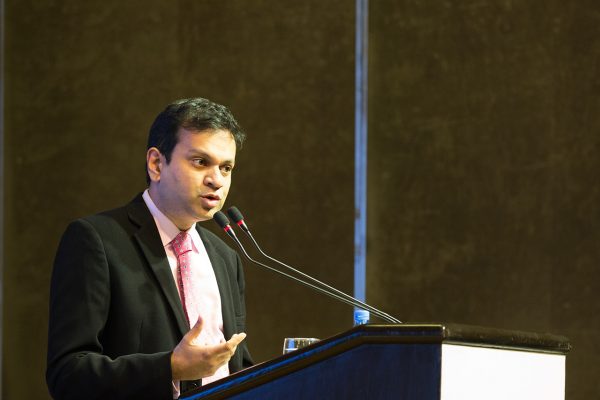Of painful homecomings: What’s behind an unsuccessful migration?
Reading Time: 2 minutes
“May I get some water?”
These were the first words the man uttered. He let out a few sobs as he stepped out of terminal two of Hazrat Shahjalal International Airport.
“Departed with a head full of dreams
Returned with nothing but pain
Even the shirt on his back borrowed from friends
And in his hand—a jail sentence”
He was handed a bottle of water. Holding on to a railing, he asked if there was anything to eat.
“I have been without food for the last two days. They huddled me into the flight straight from a detention centre. There was no water for us to drink on the flight,” he said.
A group of BRAC staff was providing emergency support at the airport. One of them asked him his name. With a mouth full of food, he broke into tears.
Md Nasimuddin is from the Tangail district’s Kalihati area in Bangladesh. He boarded a Riyadh-bound flight in July this year, soon after saying his Eid-ul-Azha prayers.
Leaving behind his wife and two toddlers, Nasimuddin headed to Saudi Arabia with hopes to earn a better future for his family. He knew that his job was that of a vegetable vendor, as arranged by his uncle-in-law. He was the one who set up Nasimuddin’s visa and other employment details with the help of a middleman.
Nasimuddin had little idea of what was to come.
He was forced to work at a packaging factory in the new land. Employers would often beat him due to his lack of expertise in the work.
Just three months after his arrival in Riyadh, the local police detained Nasimuddin on his way to work. He could not specifically state what his visa type was, so the authorities checked and found irregularities. He was sent to a detention camp. He was sent back home after 11 days.
“I was taken to the airport barefoot and empty-handed. They did not let me pack my clothes.” Nasimuddin borrowed a shirt from his fellow returnees to keep himself warm during the flight.
“I did not know that they sent me through unofficial arrangements. My family had been without me for three months – just so I could earn a living for them. What do I do now?”
To keep aspirant migrants safe from this suffering, BRAC is working on raising awareness against irregular migration, providing skills training for better work opportunities and supporting returnees to reintegrate in society, alongside delivering emergency support to survivors at Dhaka airport.
Approximately 21,000 Bangladeshis have been sent back to Bangladesh from Saudi Arabia this year alone, according to Shariful Islam Hasan, head of BRAC Migration Programme.
The trend of deporting workers reached an ominous momentum in September this year when 3,339 workers were sent back. The number rose to 4,662 in October, he added.
“Lack of access to information, failure to arrange proper documentation for work visa and low or no skills are among the major causes of hassle for Bangladeshi workers going abroad. Through its information service centres, support enterprises, psychosocial counselling, and language and skills centres, BRAC has already reached approximately 1,200,000 people across Bangladesh,” he said.
Aside from helping aspiring migrants in making informed decisions, BRAC is also providing reintegration services to returnees to help them ease back into society once they are back in the country.
Sourav Banerjee is a communications specialist, rights and empowerment at BRAC.





